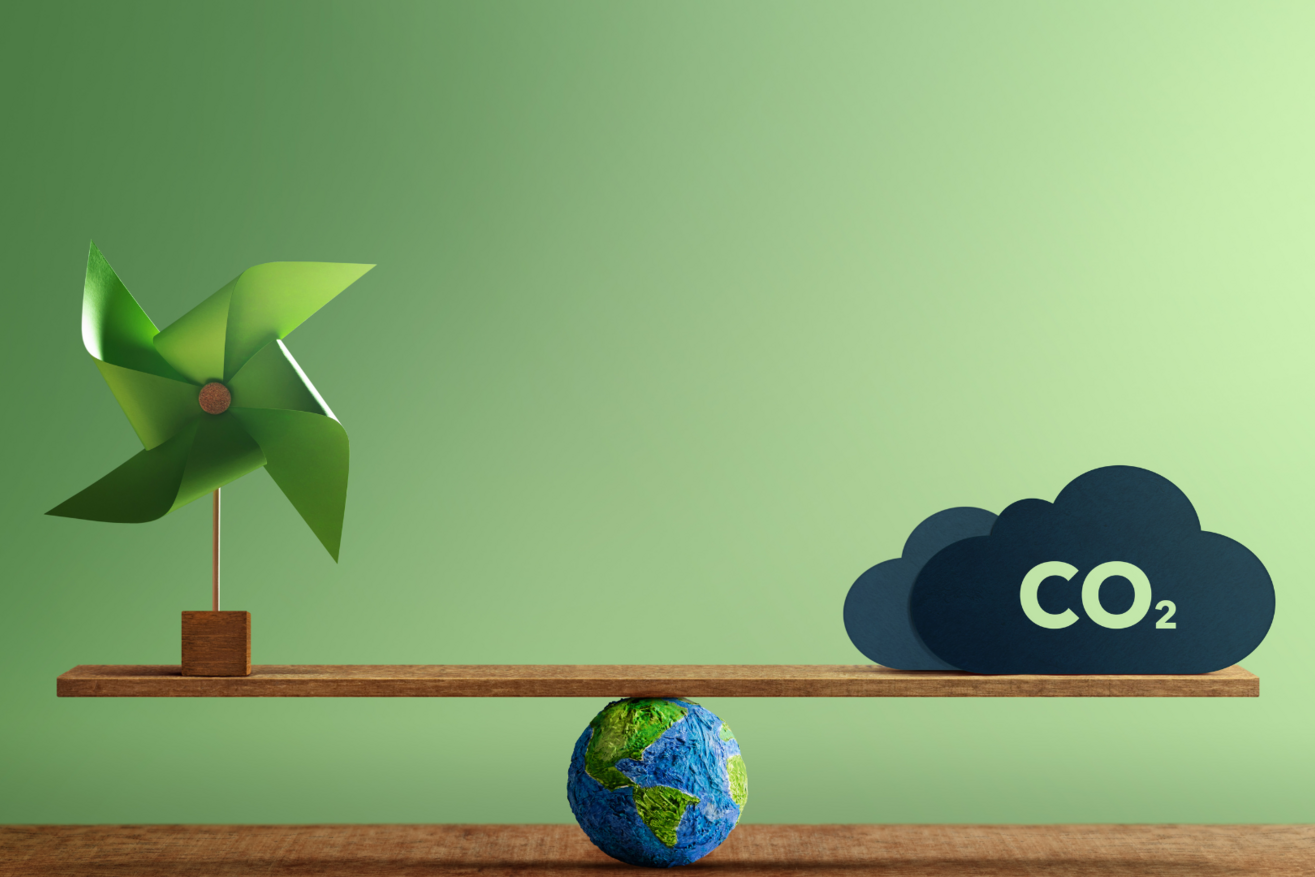Achieving Net Zero: leading the way in industrial manufacturing

Stephen Shaw, Group Engineering Director of Sheffield-based manufacturer AESSEAL talked about the challenges of achieving Net Zero in a recent webinar hosted by Odgers Interim Partner/Head of Industrial Practice Tom Legard.
Odgers Interim are running a series of webinars on Preparing for a Zero Carbon Future. In our latest event, Stephen Shaw outlined how industrial seals maker AESSEAL (AES) became one of the first ever global manufacturers to achieve Net Zero – and the challenges and benefits of doing so.
Stephen began by offering a definition of Net Zero: a target of completely negating the amount of greenhouse gases produced by human activity, to be achieved by reducing emissions and implementing methods of absorbing carbon dioxide from the atmosphere.
But even armed with a straightforward definition, this remains a confusing area. For a start, there is an abundance of terminology, from Absolute Zero Organisation to Climate Neutral, GHG Neutral, Climate Positive/Net Negative, Carbon Negative, 1.5 Degrees Celsius Aligned, Science Based/Paris Aligned. It can be hard to see the wood for the trees, and should that be afforestation or reforestation?
The UK was the first major economy to create a legally binding target to bring greenhouse gas emissions down to Net Zero by 2050. However, despite Government commitment to ambitious decarbonisation measures this does not mean emissions will drop to absolute zero by 2050 because it is difficult to completely decarbonise sectors such as industry, aviation and agriculture. Greenhouse gas removals (GGR) like planting trees and carbon capture and storage technology will therefore be vital in compensating for residual emissions.
Unfortunately, the UK’s progress on decarbonisation is not on track:
- On current trends the UK will be 197 million tonnes behind target by 2035.
- Only five of 34 sectors assessed have made notable progress in the past two years.
- Progress on setting out policies is significantly behind that on ambition.
- Less than a fifth of the emissions savings needed to be on target by 2035 are potentially or fully on track for delivery.
- Outside of the power sector, progress has been very limited.
This underlines the scale of the challenge businesses face. In its drive to hit Net Zero, AES Engineering purchased 5,000 tonnes of carbon offsets through verified VERRA or Gold Standard schemes. Where possible, projects were chosen based on their additional social and development benefits to the local region. AES intends to reduce the need for purchased offsets, but progress on this is ongoing. Moreover, through the sale of steam turbine seals and seals support systems in 2021-22, AES prevented the emission of 392,858 tonnes of carbon dioxide equivalent over a 10-year period.
AES has assessed itself to be Net Zero on the basis of its emissions, offsets, and avoidance (there is no legal definition of Net Zero that a company may be assessed against within the UK). Taking the widest sense of accountability, the total emissions AES was responsible for were fewer than the total emissions it was responsible for offsetting or preventing.
Concerningly in terms of the wider picture, Government and business are overly reliant on future technological advances. Not enough action is being taken now. The ticking clock sounds ominous as the Intergovernmental Panel on Climate Change believes that reaching Net Zero is now insufficient, and that 5-10 giga-tonnes of CO2 will need to be removed annually by the second half of this century to prevent global warming exceeding 1.5 Degrees Celsius.
For the good of the planet, AES intends to purchase approximately 60 acres of land purely for afforestation purposes. The aim is to plant about 40,000 trees to sequester CO2. The company is also assisting the University of Sheffield in the research and testing of carbon capture technology. Additionally, AES has developed a solar farm in India to provide renewable electricity for India’s carbon intensive grid.
Cost and red tape are perennial themes when Net Zero is discussed. What is often overlooked is that there can be tangible financial benefits. AES has observed an increase in the value of its business and an upsurge in interest from potential trade buyers, even though it is not touting itself for sale. It can now command a premium in the market due to the large offsetting advantages a buyer from within the pumps industry would gain.
Stephen’s presentation triggered a wave of interesting questions. One audience member wondered, given that an organisation’s Scope 3 emissions are someone else’s Scope 1 and 2 emissions, why can’t the various governments/UN/ISO bodies make it mandatory to report and provide information to the supply chain partners. The questioner added that some companies report they are Net Zero but when one looks at the products they make, it is obvious that they have ignored the key raw materials they use in their operations.
“This is a problem and we see it all the time,” Stephen responded. “It is because Net Zero is not properly defined and most schemes focus on ambition rather than Net Zero. True Net Zero is very hard to achieve. Unless the Government legislates to make this compulsory, it will not work. Also supply chains are global so it’s almost impossible to achieve.”
Stephen also addressed questions on the impact on local wildlife of the AES solar farm in India; investment in battery storage; whether it is possible to claim indirect prevention of emissions under Scope 3 for products used to insulate buildings, for refrigeration units or to make vehicles lighter, thus reducing energy usage and emissions (“Yes most definitely. Try to calculate the upside”); how to establish the CO2 content of steel from suppliers in different countries; and changes to product development processes that delivered carbon reduction.
Please don’t hesitate to get in touch for further information on Stephen’s presentation or to register for forthcoming events in our Preparing for a Zero Carbon Future series.







Comments
No comments have yet been posted, be the first to comment by using the form below:
Add your comment